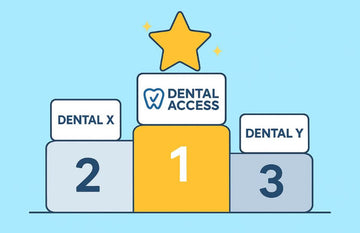Did you know that prolonged use of bottles and pacifiers beyond the recommended ages, as well as thumb-sucking, can be harmful to your baby? While these products and habits aren't harmful in themselves, prolonged use is.
Both bottles and pacifiers are good allies in the education of some children and tend to become unavoidable in everyday life. But it's important to use them correctly to avoid the appearance of certain oral problems. We will talk about them below.
The use of pacifiers, bottles and the habit of thumb sucking.
We'll discuss the impacts of excessive bottle use, pacifier use, and thumb sucking on children's oral health and orofacial development. It's important for parents to be aware of the risks associated with these habits. Here are some consequences:
1, Pacifier:
- Changes in Tooth Formation: Prolonged use of a pacifier can lead to problems such as an open bite (upper teeth protruding forward) and dental misalignment.
- Crossbite: Constant sucking can interfere with the position of the tongue, affecting the bite.
- Diastema : Spaces between teeth can appear due to the pressure exerted by the pacifier.
2. Baby bottle:
- Early Weaning: Prolonged bottle use can make the transition to solid foods difficult and harm breastfeeding.
- Speech Problems: Bottle feeding can affect the oral muscles, influencing the articulation of speech sounds.
- Changes in Bone Formation : Inadequate growth of the bones of the maxilla and mandible may occur.
3. Thumb Sucking:
- Open and Cross Bite: Thumb sucking can cause dental misalignment and affect the position of the teeth.
- Jaw Impact: Prolonged sucking can harm the development of the jaw and face.
- Changes in Breathing and Swallowing : Sucking patterns can influence these functions.
Strategies for parents to help ease prolonged bottle use, pacifier use, and thumb sucking in their children:
Pacifier:
- Know the Pros and Cons: Learn about the benefits and risks of pacifiers. Consult your pediatrician to make an informed decision.
- Limitation of Use: Offer the pacifier only at specific times and avoid letting the child sleep with it in their mouth.
- Orthodontic Nipples: Choose pacifiers with orthodontic nipples to protect the oral structure.
Feeding bottle :
- Withdraw Gradually: Try to wean the bottle before the child turns 1 or, at most, 2 years old.
- Transition to Cup: Encourage the use of a cup for liquids, gradually reducing dependence on the bottle.
Thumb Sucking:
- Offer Alternatives: When your child wants to suck their thumb, distract them with toys, teethers, or other activities that involve their hands.
- Affection and Attention: Deal with crying and restlessness with affection and attention, avoiding using your finger as comfort.
Remember that every child is unique, and the approach must be tailored to their individual needs. Consulting a healthcare professional is essential for specific guidance.










